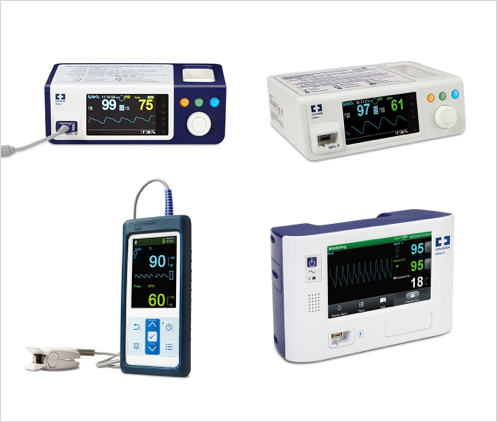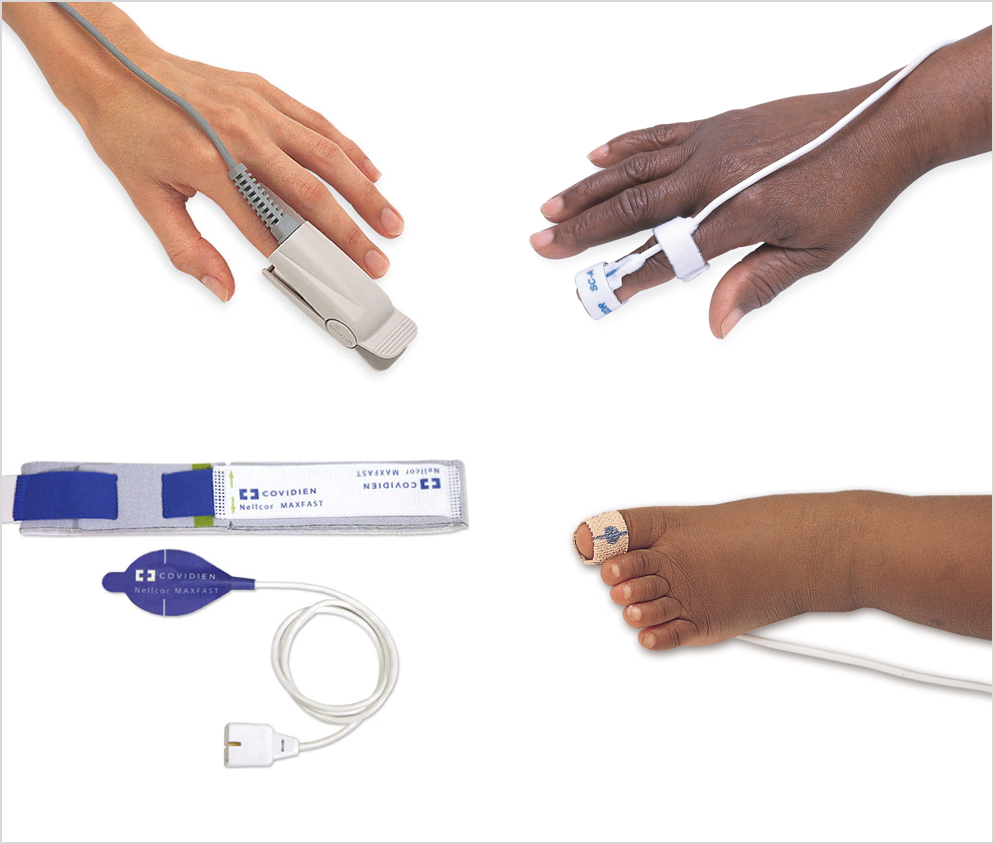

When respiratory signals are hardest to find, we start with the heart.
Contact UsFrom neonate to the elderly, and virtually every patient in between, count on Nellcor™ pulse oximetry to provide quick and reliable information. We look at every heartbeat to ensure that readings are sensitive and timely, even in the most challenging monitoring conditions.†
Watch VideoFor the past 40 years Nellcor™ pulse oximetry has consistently delivered respiratory monitoring solutions that clinicians can count on.
Nellcor™ pulse oximetry looks at every single heartbeat to help ensure readings are sensitive and timely,1-4 enabling clinicians to quickly identify patients that need their help.
Nellcor™ pulse oximetry is shown to be accurate, even when respiratory signals are the hardest to find.5†
Some pulse oximeters post based on assumptions about blood flow.6 Nellcor™ pulse oximetry stays true to the beat by identifying every pulse and only posting what is detected—so you can trust a reading.1
The best care starts from the heart, especially in the moments when you need to act fast. And for newborns who need special care and monitoring, Nellcor™ pulse oximetry tracks every tiny heartbeat.
Every second counts when it comes to making care decisions for newborns. Nellcor™ pulse oximetry accelerates the time to post of accurate vital signs,4 so you can quickly provide informed care.
As heartwarming as newborn kicks can be, kicking motion can also pose challenges to accurate monitoring. Nellcor™ pulse oximetry’s motion-tolerant technology ensures you can trust in the reading when it matters most.1
Nellcor™ pulse oximetry sensors are designed to be sensitive—both to the delicate skin of fragile newborns and in demonstrating industry-leading SpO2 accuracy.5
Medtronic is committed to offering learning opportunities that will help you broaden your clinical expertise.
Take a course to learn what Critical Congenital Heart Defects are and how screening can help identify CCHDs in newborns.
Discover more learning opportunities that meet your training and educational needs.
Learn MoreDiscover more about Nellcor™ pulse oximetry. In these videos, you will learn about the following:
Nellcor™ portable SpO2 patient monitoring system, PM10N
Nellcor™ bedside SpO2 patient monitoring system, PM100N
Nellcor™ bedside respiratory patient monitoring system, PM1000N
Register now to receive periodic email updates with recent clinical evidence on respiratory compromise.
Learn MoreNellcor™ pulse oximetry monitors read every single beat. And by posting timely,4 sensitive answers and reducing clinically insignificant alarms,7,8 it puts you closer to each patient. Medtronic has also developed the Vital Sync™ remote patient monitoring platform, that offers remote viewing of patient information.

The Nellcor™ pulse oximetry sensor portfolio offers a range of options so you can choose the right sensor to meet the needs of the patient.

The Nellcor™ pulse oximetry monitoring system should not be used as the sole basis for diagnosis or therapy and is intended only as an adjunct in patient assessment.
Oxygen saturation accuracy can be affected by certain environmental, equipment, and patient physiologic conditions (as discussed in the operator’s manual for the monitor) that influence readings of
SpO2. Please consult the IFU & manual for full safety information.
1. Mannheimer PD, Clark RB. Digital Signal Processing Technology in Nellcor™ OxiMax Pulse Oximeters. Medtronic White Paper 15-PM-0135 ©2015.
2. O’Donnell CPF, Kamlin COF, Davis PG, Morley CJ. Obtaining pulse oximetry data in neonates: a randomized crossover study of sensor application techniques. Arch Dis Child Fetal Noenal Ed. 2005; 90; F84-F85.
3. Saraswat A, Simionato LK, Dawson JA, Thio M, Kamlin O, Owen L, et al. Determining the Best Method for Nellcor Pulse Oximeter Sensor Application. Acta Pædiatrica. 2011. 1-4.
4. Khoury R, Klinger G, Shir Y, Osovsky M, Bromiker R. Monitoring oxygen saturation and heart rate during neonatal transition. comparison between two di!erent pulse oximeters and electrocardiography. J of Perinatology. Published online November 30, 2020. doi: 10.1038/s41372-020-00881-y.
5. Medtronic Internal Reports.
6. Masimo signal extractions technology (SET™* technology). Accessed February 17, 2020. https://www.masimo.com/technology/co-oximetry/set/.
7. Brostowicz HM, Khodayar Rais-Bahrami K. Oxygen saturation monitoring in the neonatal intensive care unit: evaluation of a new alarm management. Presented at: American Academy of Pediatrics National Conference & Exhibition; October 17-20, 2009; Washington D.C.
8. Stefanescu B, O’Shea T, Haury F, Carlo W, Slaughter J. Improved Filtering of Pulse Oximeter Monitoring Alarms in the Neonatal ICU: Bedside Signi"cance. Respiratory Care. 2016;61(1):85-89. doi: 10.4187/respcare.04177